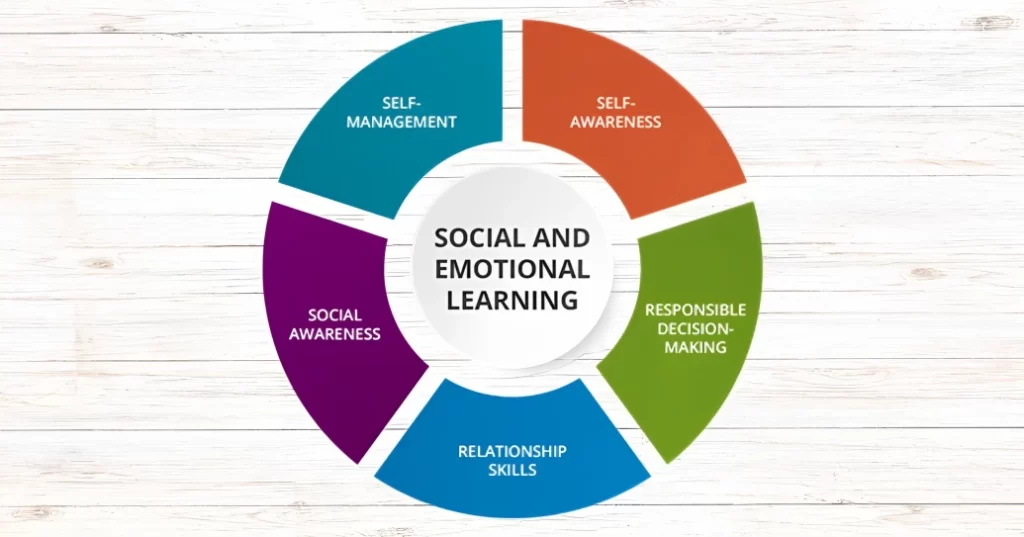Social and Emotional Learning (SEL) Produces Significant Benefits for Students
SEL programs can improve academic achievement, reduce problem behaviors, and increase social-emotional competence.
A study was conducted recently by Christina Cipriano and Michael Strambler at the Yale Center for Emotional Intelligence. This study was funded by William T. Grant Foundation.
This study, published in the journal Child Development in 2023 has found that social and emotional learning (SEL) programs can produce significant benefits for students. SEL programs can improve academic achievement, reduce problem behaviors, and increase social-emotional competence.
About The Study
The researchers said that the study looked at data from over 500,000 students in grades K-12 who had participated in SEL programs in the United States, Canada, and the United Kingdom. They found that students who participated in SEL programs had significantly higher academic achievement than students who did not participate in SEL programs.
SEL programs were associated with a reduction in problem behaviors such as aggression, bullying, and substance abuse. Also, these programs were associated with an increase in social-emotional competence, which includes skills such as self-awareness, self-management, social awareness, relationship skills, and responsible decision-making.
The findings of this study support the growing body of research that shows that SEL programs can be an effective way to improve student outcomes. SEL programs can help students develop the skills they need to succeed in school, work, and life. They can also help students build positive relationships, manage their emotions, and make responsible decisions.
The researchers who conducted this study believe that SEL programs should be a part of every school’s curriculum. They argue that SEL programs are essential for helping students develop the skills they need to thrive in today’s world.
What are the SEL programs?

Social-emotional learning (SEL) programs are designed to help students develop the skills they need to be successful in school, work, and life. These skills include:
- Self-awareness: Understanding one’s own emotions, strengths, and weaknesses.
- Self-management: Managing one’s emotions, thoughts, and behaviors in a healthy way.
- Social awareness: Understanding the emotions and perspectives of others.
- Relationship skills: Building and maintaining positive relationships with others.
- Responsible decision-making: Making choices that are in line with one’s values and goals.
There are many different SEL programs available, each with its own set of goals and objectives. Some of the most popular SEL programs include:
The RULER Approach
The RULER Approach is a school-wide approach to social and emotional learning that teaches students how to recognize, understand, label, express, and regulate their emotions. The program is based on the idea that emotional literacy is essential for success in school, work, and life.
The RULER Approach uses a variety of activities and exercises to help students develop their emotional literacy skills. These activities include:
- Learning about the different types of emotions
- Practicing labeling emotions
- Developing strategies for managing emotions
- Learning how to express emotions in a healthy way
The RULER Approach has been shown to be effective in improving students’ emotional literacy skills. Studies have shown that students who participate in the RULER Approach are better able to recognize, understand, label, express, and regulate their emotions. They are also less likely to engage in problem behaviors such as aggression and bullying.
The PATHS Curriculum
The PATHS Curriculum is another school-wide SEL program that teaches students how to manage their emotions, solve problems, and build positive relationships. The program is based on the idea that social-emotional competence is essential for success in school and life.
The PATHS Curriculum uses a variety of activities and exercises to help students develop their social-emotional competence skills. These activities include:
- Learning about different emotions
- Practicing problem-solving skills
- Learning how to build positive relationships
- Developing strategies for coping with stress
The PATHS Curriculum has been shown to be effective in improving students’ social-emotional competence skills. Studies have shown that students who participate in the PATHS Curriculum are better able to manage their emotions, solve problems, and build positive relationships. They are also less likely to engage in problem behaviors such as aggression and bullying.
The Second Step Program
The Second Step Program is a school-based SEL program that teaches students how to prevent and respond to bullying. The program is based on the idea that bullying is a learned behavior and that it can be prevented by teaching students how to interact with each other in a positive way.
This Program uses a variety of activities and exercises to help students learn how to prevent and respond to bullying. These activities include:
- Learning about the different types of bullying
- Practicing ways to stand up to bullies
- Learning how to resolve conflicts peacefully
- Developing strategies for coping with being bullied
The Second Step Program has been shown to be effective in reducing bullying in schools. Studies have shown that students who participate in the Second Step Program are less likely to be bullied and are more likely to intervene when they see bullying happening.
These are just three examples of the many SEL programs that are available. There is no one-size-fits-all program, so it is important to choose a program that is appropriate for the specific needs of your students.
The Importance of Social and Emotional Learning
In today’s world, social and emotional learning is more important than ever before. With the increasing challenges that students face, such as stress, anxiety, and social isolation, SEL can help students develop the skills they need to cope with these challenges and to thrive in school and in life.
SEL is also important for the future of our society. As our world becomes increasingly interconnected, the ability to work effectively with others and to resolve conflict peacefully will become increasingly important. SEL can help students develop these essential skills.
The research on SEL is clear: SEL programs can produce significant benefits for students. If you are interested in learning more about SEL, I encourage you to do so. There are many resources available to help you get started.
Read out all the latest news and updates related to business, Technology, and Science on oreonow.




2 Comments